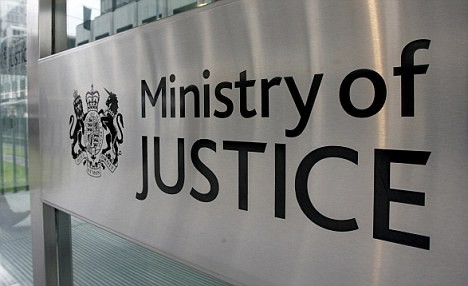By Ben Kerrigan -
The Ministry Of Justice has published its review on parole rulings, following a consultation that sought the public’s view on a mechanism that would allow the Parole Board to reconsider its decisions in certain circumstances. The British Government has emphasised that the reconsideration mechanism is part of a wider package of measures that the Government is introducing to make improvements and reforms to the system of parole
In addition to the conclusion that a mechanism to allow reconsideration of parole decisions should exist, the Moj admits that a process that provides an easier way to challenge decisions which appear to be seriously flawed needs to exist. Under new measures soon to be put in action, the Secretary of State will able to apply for reconsideration to the Parole Board, taking account of any representations from victims. It will no longer be necessary to resort to costly and time-consuming judicial review proceedings. Decisions on whether a case should be reconsidered will be taken by judicial members of the Parole Board. Reasons for their decisions will be provided to victims.
The announcement of this review confirms the willingness of the government to address failings in the justice system which need to be changed to restore complete faith in the legal system. The British Legal System generally works well and fairly for those who prepare well and can afford good representation, but weakness have surfaced in various aspects of the law over the years. No legal system is totally free from errors or weaknesses, but a strong and honourable legal system always seeks to rectify its weaknesses. Affordability is something that has been a problem for many litigants, which is one of the reasons an inquiry into restoring a need form of legal aid or legal guidance to all those who need it is currently in the works.
The Moj appear to have undertaken detailed work since the completion of the last consultation which ended in July 2018,working closely with Her Majesty’s Prison & Probation Service (HMPPS) and the Parole Board for England and Wales to carefully construct a model for how reconsideration might best be delivered. They have expressed confidence that an effective mechanism which provides the opportunity to challenge decisions that appear to be seriously flawed but is also proportionate and workable and does
not create unnecessary delays or uncertainty in the system for the vast majority of cases for which reconsideration will not be needed.
GUIDANCE
Provision in the Parole Board Rules to implement these changes are not due to be set in motion until later this year, but the Moj has said they will put into place the necessary guidance, training and resources need to operate this mechanism in the meantime. Their conclusion is clear and to the delight of those who have expressed serious discontent with the current system and operations of Parole Boards. In certain circumstances, Parole Board decisions should be allowed to be reconsidered. In deciding that, they have to agree which types of decisions should be reconsidered; who should be able to apply for reconsideration of a decision, and on what basis a decision should be reconsidered.
The Moj also raised the issue of transparency whilst also ensuring sufficient safeguards to protect panel members, victims and other Liaison Officers (VLOs), who will play a key role in providing information to victims about the reconsideration mechanism and how it works. We will ensure VLOs are equipped with the training, guidance and other tools they need for this. Victims who believe a decision is flawed will be reconsidered once they have put their case to the Secretary of State – via the Public Protection Casework Section (PPCS)in HMPPS – PPCS are best placed to examine the details of the case and assess
whether an application should be made to the Parole Board.




